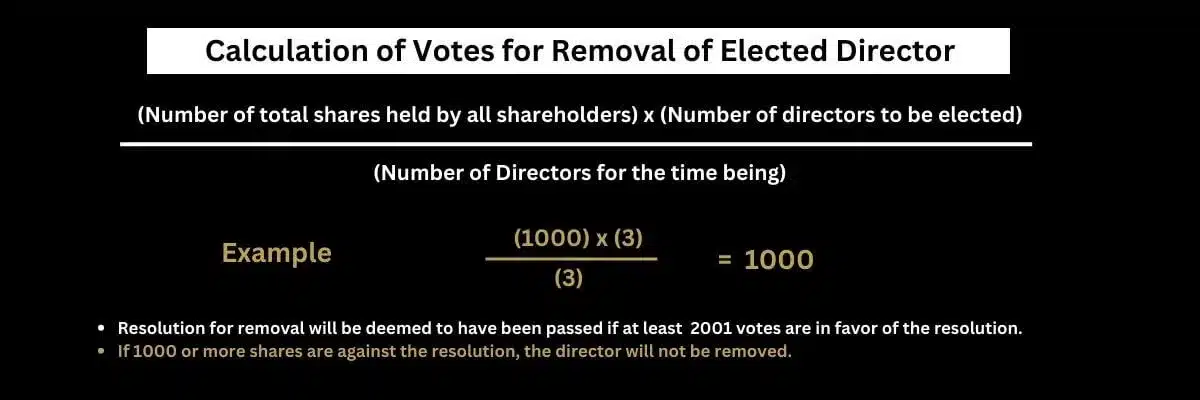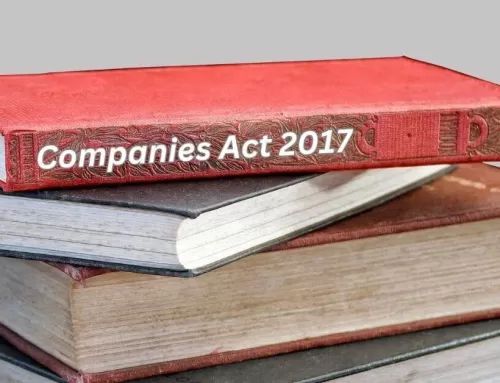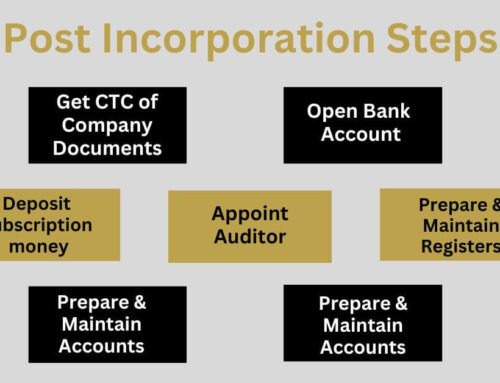Company directors or Board of Directors (as a collective body) is the critical management team of a company. The Company law in Pakistan provides that a company’s management mainly vests with the board of directors. The law provides the minimum number of directors a company must have. Next, the law provides the eligibility criteria to become a director, the mode of appointment of a director, and their powers, roles, and responsibilities.
In this article, you will learn in detail about who is a director and what is a board of directors under the company law in Pakistan. You will learn how to structure the board of your company. Further, you will learn about how many directors a company must have and what kind of directors a company may have. You will also learn about the qualifications of the directors.
We will learn how the directors are appointed or elected and how a director may be removed from the company.
Overview
- What is a Board of Directors in a Company?
- Who is the Director of a Company?
- Who can become a director of a Company?
- Qualification and Disqualification of a Director under the Companies Act
- Vacation of office by the directors
- Minimum Number of Directors in a Company
- Maximum Number of Directors in a Company
- Types of Directors
- Who Appoints the Directors?
- First Directors of a Company
- Term of the First Directors
- First Election of Directors
- Election of Directors Procedure under Companies Act 2017
- Computation of Votes for the purpose of Election
- Term of Office of Elected Directors
- Subsequent Election of Directors
- Resignation of a Director
- Fresh Election of Directors
- Removal of a Director
- Conclusion
What is a Board of Directors in a Company?
The board of directors (BOD or the Board) is the management body of a company comprised of one or more directors. Under the law in Pakistan, the board of directors has a collective responsibility for the overall management of the company. All powers of the company are vested in the board of directors and the board may delegate their powers to one or more directors or officers of the company.
The Companies Act 2017 defines the board of directors as simply the “board of directors of the company”. However, from the context, one can understand that it is the collective management body of the company comprising more than one person in the case of private and public companies. However, the Single-member company has only one director.
Who is the Director of a Company?
You may ask if a company needs a board of directors then who is a director? A director is one of the members of the board who along with the other directors performs management functions in the company. His powers, functions, roles, and responsibilities are prescribed, subject to law, by the articles of the company, any resolution of the company, and the company law itself.
The Companies Act 2017 (company law in Pakistan) defines a director as; “any person occupying the position of a director, by whatever name called.” Though the definition in the company law does not precisely define the word “director”. However, generally, a director is the person who is responsible for managing the company under the law.
The next question that may arise in your mind is who can become a director of a company. Can every person become a director or there are some qualifications for the office of director?
Who can become a director of a Company?
Every natural person can become a director in a company if he is not ineligible or disqualified. This means that a company or other body cannot act as director of a company. In case a company holds a sufficient number of shares to elect a director, that shareholder company will have to nominate some natural person to represent it on the board of the company.
Qualification and Disqualification of a Director under the Companies Act
The Company law provides that a person shall be ineligible to become a director in a company if he:
- Is a minor (a person under the age of 18 is a minor);
- Is of unsound mind;
- Has applied to be adjudicated insolvent and his application is pending;
- Is an undischarged insolvent;
- Has been convicted by a court for an offense involving moral turpitude;
- Has been debarred to act as a director under the Companies Act;
- Lacks fiduciary behavior and a court has made a declaration in the last five years;
- Does not hold national tax number unless the Commission exempts this requirement;
- Is not a member. However, this requirement will not apply if i) the person is representing a member who is not a natural person (like a company, corporation, or a body corporate or other organization, ii) a whole-time director who is an employee of the company, iii) CEO and iv) a person representing a creditor or other special interest under a contractual arrangement;
- Has been declared defaulter of any financial institution by a court (applicable to the listed company only;
- is a broker or spouse of a broker or is a sponsor, director, or officer of a corporate brokerage house. (This applies only to a listed company).
If a person is not ineligible or disqualified for any of the reasons mentioned above, still a person may be disqualified to hold the office of director or he may cease to hold such office by the regulatory authority.
Vacation of office by the directors
A director may cease to hold the office for any of the reasons below:
- he becomes ineligible for any of the disqualifications mentioned above;
- he absents himself from three (03) consecutive meetings of the board without leave of absence;
- he, or company in which he is a director or a firm in which he is a partner holds any office of profit in the company other than CEO, or legal or technical advisor;
- he, or company in which he is a director or a firm in which he is a partner accepts a loan or guarantee from the company in violation of law related to loan to directors.
Minimum Number of Directors in a Company
The law provides different lower limits for the number of directors based on the kind of company. A company can not work without having the minimum number of directors as per the table below:
| Kind of Company | Minimum Number of Directors |
|---|---|
| Single Member Company | 01 |
| Private Limited Company | 02 |
| Public Limited Company | 03 |
| Listed Company | 07 |
Maximum Number of Directors in a Company
The law does not limit the number of directors a company can have. However, the number of directors is fixed keeping in view the size of the company and the roles and functions to be performed by the directors.
Types of Directors
A company may have different types of directors. The law provides different roles and functions for each type of director.
A company may, keeping in view the type of company, have different types of directors.
Executive director
An executive director is a director who devotes his whole or substantial time to the operations of the company. He is paid for his executive role in the company.
Non-executive director
A non-executive director is a director who is not from the executive management, works part-time, gives an outside viewpoint to the board, and is not a beneficial owner in the company). Such a director may not receive any remuneration from the company except the meeting fee as approved by the board or the members.
Independent director
An Independent director is a director who is not connected or does not have any other relationship, whether pecuniary or otherwise, with the company, its associated companies, subsidiaries, holding company, or directors and can give independent business judgment without any conflict of interest). Independent directors are required in the listed companies.
The law provides specific criteria and manner of selection of an independent director in a company.
Nominee director
A nominee director is a director who represents creditors or special interests, a body corporate, or a government to act on the board. The role of the nominee director is limited to representing the company, body corporate, or the government who nominates and he represents the viewpoint of the nominating company, body corporate, or the government. His term of appointment lasts until his nomination is withdrawn or an election.
Alternate director
An alternate director is a director who works, with the approval of the board of directors, in place of another director who is not in Pakistan for more than 90 days.

Who Appoints the Directors?
Initially, the directors are appointed at the time of incorporation of the company. Later, they are elected by the shareholders (one of the rights of the shareholders) through election in the first annual general meeting and then after every three years. Sometimes director(s) may be appointed to fill a casual vacancy. And in the case where a member acquire requisite number of shares he may demand new election.
Time and Mode of Appointment of Directors
| Time of Appointment | Mode of Appointment |
|---|---|
| Incorporation/registration | Determined by the subscribers to the memorandum |
| First AGM | Elected by the members/shareholders |
| Subsequent Election (After every 3 years) | Elected by the members/shareholders |
| Casual Vacancy due to the death, resignation, or removal of a director | The board will appoint any member |
| New Election on acquiring the requisite number of shares to get a member elected as director | Elected by the Members (on demand by the acquiring member) |
First Directors of a Company
The first directors of a company are determined by the subscribers to the memorandum at the time of incorporation of the company. If you are registering a company, you will have to mention some or all of the subscribers (depending on the nature of the company) to act as directors.
Term of the First Directors
The directors appointed at the time of incorporation hold the office till the first annual general meeting (AGM). The law requires to hold the first AGM within 16 months of the incorporation. However, the first AGM may be held before 16 months. Every company other than a single member company, has to hold election of directors.
First Election of Directors
In the first AGM, the election of directors is held. The existing directors shall fix the number of directors to be elected in the AGM. They will have to fix this number not later than 35 days before the AGM. The law provides that this number may not be changed without approval of the general meeting in which election is to be held.
Election of Directors Procedure under Companies Act 2017
The Companies Act 2017 provides the procedure for election of directors. The step wise procedure for the election of directors (including independent directors, if required) is given below.
The existing directors of the company will, at least 35 days before the AGM, fix the number for the directors to be elected in the AGM. The numbers fixed by the directors may not be changed without approval of the general meeting in which the election is to be held. This means that if the directors fix a number for the directors to be elected and the member want a different number of directors, the matter will be decided by the members in the AGM.
The directors will send a notice of general meeting to every member of the company. The notice will contain the information about the retiring directors and the number of directors to be elected in the general meeting. The notice must be given 21 days before the meeting day.
Any interested member including the retiring directors may contest the election by filing a notice of their intention at least 14 days prior to the date of election. The contestants may withdraw their notice of intention any time before the meeting.
The directors will send notices of intention to contest election to all member at least 7 days before the election. If the company is a listed company, the notice of intention must be published in the Urdu and English (one each) newspapers of wide circulation.
If the number of contestants is not more than the number of directors to be elected, the contestants will be elected unopposed.
If the candidates are more than the number of directors to be elected then election will be conducted.
Computation of Votes for the purpose of Election
Every member shall have voting rights calculated on the basis of a product of voting rights held by him and the number of directors to be elected. The following formula will apply for calculation of the voting rights for the election of directors.
For example, if a member holds 500 shares (having 1 vote for each share) and 3 directors are to be elected, the voting rights available to the member will be 1500.
The member has the option to give all his votes to any one candidate or divide these 1,500 votes in favor of more than one candidate as he wishes.
At the time of counting, the candidate getting the highest number of votes is declared as elected. Then the candidate who receives the next highest number of votes is declared as elected. This goes on until the total number of directors is elected.
Term of Office of Elected Directors
An elected director continues to hold that office for a period of 3 years from the date of election unless he resigns, vacates the office due to re-election, becomes disqualified or otherwise ceases to hold office.
Subsequent Election of Directors
The directors elected in the first AGM will hold their offices for 3 years. After the expiry of 3 years term, election will be held for next 3 years and so on. The elected directors may contest the subsequent elections without any restriction unless they are disqualified under the law.
Resignation of a Director
A director may resign from the office at any time by intimating the board of directors. The board of directors then may fill the casual vacancy by appointing any person (subject to qualification) who will hold the office for the remaining period. For example, if a director was elected in October 2020, his term would end in October 2023 but he resigns earlier. Then the director appointed in his place will hold the office till October 2023.
Fresh Election of Directors
If after election of directors, a member acquires such of number of shares that would get him elected on the board of a company may require the company to hold fresh election of directors. In such a case the board of directors will proceed to hold the election within 30 days. The election will be held in the same way as discussed above.
To ensure that the acquiring members gets a fair opportunity to be elected as director, the law requires that the number of directors fixed in the preceding election will not be decreased.
Removal of a Director
A company can remove an appointed or elected director by passing a resolution in the general meeting. The law provides different voting requirements for the removal of a director based on the mode of his appointment.
Scenario 1
In case the directors were appointed:
- By the subscribers to the memorandum at the time of incorporation;
- By the board of directors to fill a casual vacancy;
- By unopposed election; and
- By fresh election due acquisition of the requisite number of shares
the number of votes will be calculated by the formula below:
Now if the votes against the removal resolution are equal to or more than the number 1000 (as calculated by the above formula), it shall be deemed that the resolution has not been passed. In other words, to remove a director in this scenario, the resolution must be passed by 2001 votes or more.
Scenario 2
In case the director was elected in terms of section 159 (5) i.e. he became director after contesting the election, the director will be removed in the following manner.
To remove an elected director, the resolution for removal must be passed with more votes than the minimum number that was cast for the election of a director in the immediately preceding election.
For example, if in the immediately preceding election, the minimum votes of an elected director was 1000, the resolution of removal will require at least 1001 votes. If 1000 or more votes are against the resolution, it will be rejected and the director will not be removed.
Conclusion
Hope you have got a fair idea about who a company director is and what is the board of directors. Further, you have learned how the board is structured in different companies.
You have also learned how the directors of a company may be appointed in different ways; they may appointed by the subscribers to the memorandum, by the board of directors, or elected by the members. A director may resign and he may be removed by the resolution of the company (members) by following the procedure prescribed by the law.































A very useful source of knowledge where I have found that the matters are explained with great clarity
Dear Asad, Thank you very much for the comment. Our aim is to educate our visitors and we will continue to add more articles.